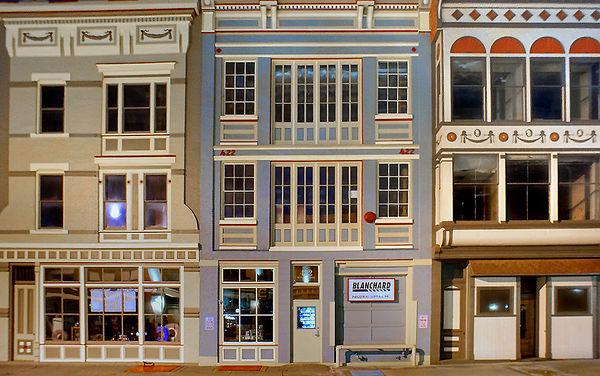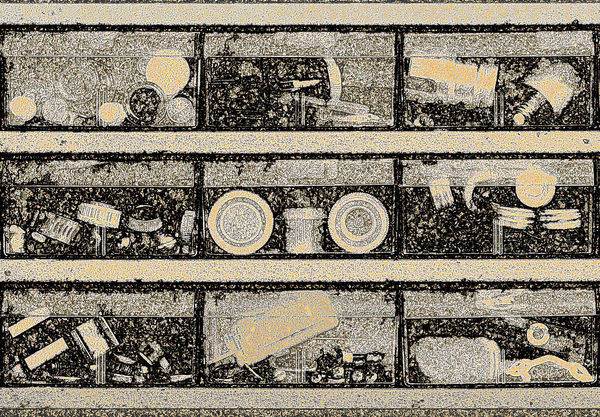Old zoom lenses not good?
Sep 28, 2018 07:12:43 #
Mr.D wrote:
I think my question has finally been andwered. So my lenses that I used on my Nikon FM-50m, 80-200, and 28m wide angle can be used on newer Nikon digital bodies?
It depends on the Nikon body.... Nikon did a wonderful job of keeping their lens to body connections compatible up through the ages.. The http://www.nikonusa.com website has a wonderful lens compatibility chart. It should help you determine which lenses work on which bodies. I have a Nikon D70s (hard to get CF cards for and doesn't work well any more), a Nikon D7000 (replaced the D70s(DX)), a Nikon D7100 (DX) and a Nikon D610 (FX) cameras. These will use all of the Nikon manual focus and autofocus lenses. Some of the newer Nikon consumer bodies (Nikon D3300 and above in the D3xxx line and D5300 and above in the D5xxx line) use the silent wave motor lenses.. ( I can't remember if they will also use AFS and AF lenses in manual focus ONLY mode or not but the cameras do NOT have the built-in focusing motor in the body so any Autofocusing lens would be manual focus only (assuming that it fits) on those cameras. NOTE: after verifying with NikonUSA and DXO all Nikon (Nikkor) SWM lenses are compatible with the older AFS cameras. Typically, the cameras which REQUIRE silent wave motor lenses are the Nikon D3xxx (beginning with the D3200 (I think) and D5XXX beginning with the D5200 (again I think that was the first) All of the Nikon D7XXX bodies will use all of the Nikkor DX and FX lenses. Personally, I have a D7000, D7100 and D610 so I purchase all FX lenses as they are compatible with both DX and FX bodies. Note: the one of the supposed advantages to using an FX lens on a DX body (since the image will still only use the center 2/3rd of the lens image) is that the entire image is supposedly in the "sweet spot" (best image area) of the lens. My main reason is because I have both FX and DX camera bodies and I don't have to worry about sticking a DX lens (which will work but only gives you the DX portion of the image) on an FX body.. All of my lenses work seamlessly on all of my bodies.
Sep 28, 2018 07:26:01 #
RWR
Loc: La Mesa, CA
Mr.D wrote:
I think my question has finally been andwered. So my lenses that I used on my Nikon FM-50m, 80-200, and 28m wide angle can be used on newer Nikon digital bodies?
Check your user’s manual under “Compatible Lenses.” The chart tells you which lenses will fit, and their functions.
Sep 28, 2018 15:43:52 #
User ID wrote:
Do NONE of the ABOVE !
Ignore all our geeky troublemakers.
Enjoy your lens that cost less than a
draft in the average beer joint :-) Do
beware of electrical tape, especially
in hot conditions. If you really love
the lens after the honeymoon, you
might wanna get the creep properly
addressed by a service shop. It will
STILL be a good bargain, especially
in refreshed mechanical condition.
`
Ignore all our geeky troublemakers.
Enjoy your lens that cost less than a
draft in the average beer joint :-) Do
beware of electrical tape, especially
in hot conditions. If you really love
the lens after the honeymoon, you
might wanna get the creep properly
addressed by a service shop. It will
STILL be a good bargain, especially
in refreshed mechanical condition.
`
There is a fact of the matter: some kinds of old lenses are better than others.
Of course, one can always chose to ignore facts ("Fake news! My lenses are all
very good, very nice, Mexico will pay for that lens.")
Only a complete idiot would think that photo proves the lens is "good".
It only proves it was good for that (very unchallenging, from an optical
standpoint) subject.
Lenses with aberrations and flare can be wonderful for special uses
(e.g., the old "portrait lens"). So instead of being stupid, why don't we talk about
appropriate uses for an old zoom?
Sep 28, 2018 17:32:56 #
Bipod wrote:
Only a complete idiot would think that photo proves the lens is "good".
It only proves it was good for that (very unchallenging, from an optical
standpoint) subject.
Lenses with aberrations and flare can be wonderful for special uses
(e.g., the old "portrait lens"). So instead of being stupid, why don't we talk about
appropriate uses for an old zoom?
It only proves it was good for that (very unchallenging, from an optical
standpoint) subject.
Lenses with aberrations and flare can be wonderful for special uses
(e.g., the old "portrait lens"). So instead of being stupid, why don't we talk about
appropriate uses for an old zoom?
Darn!
I would like to think that I know the limitations of most of my lenses ...
... and, which will be better-or-best for various situations ...
... but, I guess that I must be a "complete idiot" because I think that the subject in the OP's "fish" picture presents a perfect, real world situation where the corners do not need to be COPY LENS rectilinear and the corners do not necessarily need to be in the same plane of focus as the primary object, et cetera.
Sep 28, 2018 18:55:09 #
alfeng wrote:
Darn! br br I would like to think that I know the... (show quote)
Very true -- as long as you never take photos of buildings, picket fences, parquet floors, or the horizon.
But I guess those don't exist in the "real world".

Who said anything about COPY LENS rectilinearity? We're just trying for "normal lens on a cheap camera"
rectilinearity--which you might not get from that zoom -- if you bother to check it at several focal settings.
And who said that distortion is the only problem? Aberrations causing significant loss of sharpness are a very
real possibility. To find out, you'd have to shoot something with fine detail at several different focal settings.
But hey, what you don't know can't hurt you, right?
Sep 28, 2018 20:04:49 #
Bipod wrote:
... what you don't know can't hurt you, right?
RIGHT!
Sep 28, 2018 20:47:17 #
alfeng wrote:
RIGHT!
Have another cigarette, fella. You're going to make some oncologist rich.
Look folks, I'm a fan of old prime lenses--I even own an old zoom
from the late 1970s. And that's why I say: know the capabilities of
all your lenses--but especially old zooms.
When you change lenses, you reach for the best tool for the job from
those in your bag, right? (Otherwise, why change lenses at all? Just buy
a fixed lens camera with a modern zoom and have at it. Lots of good
pictures get taken that way.)
Zooms are not "just another lens". They are massively complex. The
ones made by paper-and-pencil design (before around 1980) ranged from
OK for some subjects to horrible--and everywhere in between. Other
than being available used for cheap, there isn't much to recommend them.
Possibly a 1970s zoom with particularly good mutli-coating might
have a lower flare than the most complex modern zooms (with 15 or more
groups!), but they only way to know would be to test it. Testing loss of
contrast due to flare is not easy. So I don't view this as reason for buying
a really old zoom.
Zooms made in recent decades are a totally different story. There's no reason
to suppose a zoom made in the last 30 years isn't just as good as one made
yesterday. There have been some minor improvements, but there has always
been a lot of variation between models.
If somebody has published tests of a lens you own, great!--read it. If not,
the only way to know immediately what you've got -- a servicable lens or
a paperweight--is to test it. Otherwise you'll find out one spoiled shot at a time.
Often abberations don't get noticed until it's too late to try a different lens.
Why take the risk? Using a zoom lens isn't manditory. Why pick
such a complicated lens if you're on a budget? The only reason I can
think of is to shoot moving subjects or portraits (where unsharpness may
actually be a plus).
I tested my 1970s zoom. It's reasonably sharp, but has some distortation.
As a result, I use it for animals, waterfalls, clouds, some sports, etc.
These subjects can move, which makes a zoom worth the lower
image quality.
Were I not still using an old film camera sometimes, I would not own tis
zoom.
Sometimes the truth takes more than one word to express--which I know
taxes the attention of people raised by the TV...
Sep 28, 2018 23:41:57 #
I
As a “complete idiot” as you called me and others I have to ask if you have read Ken Rockwell’s review of Nikkor 80-200 f 4.5 ai new version? If not, you have better do it before you call me and others that praise that zoom “complete idiots”.
Many, like me, don’t appreciate “besserwisser” and their attitude. Opinions are of course good to hear, but being called a “complete idiot” is not good or constructive critics. I know, I should ignore you, but a fair conversation can be helpful, even to nbesserwissers. Learn to listen to other and RESPECT them!
Just my piece of advice to you.
/Bosse
Bipod wrote:
Have another cigarette, fella. You're going to ma... (show quote)
As a “complete idiot” as you called me and others I have to ask if you have read Ken Rockwell’s review of Nikkor 80-200 f 4.5 ai new version? If not, you have better do it before you call me and others that praise that zoom “complete idiots”.
Many, like me, don’t appreciate “besserwisser” and their attitude. Opinions are of course good to hear, but being called a “complete idiot” is not good or constructive critics. I know, I should ignore you, but a fair conversation can be helpful, even to nbesserwissers. Learn to listen to other and RESPECT them!
Just my piece of advice to you.
/Bosse
Sep 29, 2018 06:04:11 #
therwol
Loc: USA
Elmerviking wrote:
I br br As a “complete idiot” as you called me an... (show quote)
There are adequate reviews and opinions on this lens to suggest that maybe it was darn good. I never owned this one. I did have the f/4 version that followed immediately and thought it was quite good.
As for someone'e comment suggestion that computer simulation was not used to design zooms before the 80's, I doubt it. I was familiar with computer simulation in college in the early 70s. Computer simulation got the Apollo astronauts to and from the moon. The computer age did not begin with the PC/Mac. We only got a GUI that non-computer oriented people could use.
Sep 29, 2018 08:06:09 #
Sep 29, 2018 08:57:13 #
therwol
Loc: USA
Mr.D wrote:
Now that’s good advice.
Use Quote Reply so we can see whose post you are replying to.
Sep 29, 2018 10:04:24 #
Bipod wrote:
Have another cigarette, fella. You're going to ma... (show quote)
If I were as concerned as you seem to be about how free from aberrations the computer formulated lenses are compared with vintage, hand calculated lenses, then I guess that I would only be using those pitiful Leitz APOCHROMATIC lenses which were designed in the 1970s rather than marvel at how computer-aided designs now allow for remarkable Zoom lenses which also benefit from the multi-coated layering which mitigates some of the complications of additional glass-air surfaces ...
... I do marvel at the resolution on some of the 'close-up' pictures which some people have posted which were taken with their Zoom lenses ...
... and, I marvel at the claims by some people that they make 16x20-or-larger (!?!) prints ...
... But, knowing the limitations of my lenses (and, some ARE comparatively disappointing) is all that I need to know.
If YOU haven't used some vintage Leitz, Nikkor, or Zuiko PRIME lenses (yes, I do remember that this began as a thread about a vintage Zoom lens) then YOU probably don't have a proper foundation from which to make your condemnation of older lenses OTHER THAN the anecdotal remarks of others OR some tests you have read about which others performed.
Sep 30, 2018 14:24:54 #
The claim was: "People who claim new zoom lenses outperform oldies are, in my opinion, totally wrong. Judge yourself!"
That evidence is not enough to judge anything about a lens.
But keep spinning it.
That evidence is not enough to judge anything about a lens.
But keep spinning it.
Sep 30, 2018 14:28:34 #
Elmerviking wrote:
I br br As a “complete idiot” as you called me an... (show quote)
You didn't cite Ken Rockwell's review (who tested the lens on demanding subjects).
You cited a cited a single photo claiming it proved something.
But now you are weasling out of that position.
Sep 30, 2018 15:26:06 #
Bipod wrote:
Very true -- as long as you never take photos of b... (show quote)
ROTFLMFA !
Optical mortal sins proudly on parade.
`
If you want to reply, then register here. Registration is free and your account is created instantly, so you can post right away.







